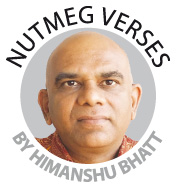LAST month a profoundly meaningful day for Malaysians passed us by without being noticed.
The United Nations observed International Mother Language Day, as it has done annually on Feb 21 for the last two decades.
The event may seem unimportant, even trivial, to many. But if there is any place on Earth where the beauty of local languages should be truly celebrated it is Malaysia.
We of course know Malay and English as the dominant languages in this country, with Mandarin and Tamil as among the other major ones.
What most of us do not realise is that there are at least 110 other languages recorded to have been spoken across the length and breadth of the nation.
Most are mother tongues, rich linguistic traditions that have been handed down ancestrally from centuries past, and maintained among successive generations with their distinctive vocabularies and parlances.
Malaysia is blessed with a plethora of aboriginal languages. There must be more than 25 that emerged from within the Malay peninsula alone.
These include the languages of the Jahai, Batek and Temiar people whom I have had the privilege of interacting with during field trips.
Amazingly, records show that Sabah and Sarawak host more than 80 indigenous cultures, each having its own tongue.
Added to these are languages of communities related to historical migrants. Many of them have absorbed and adapted lexicons from Malay and other vernaculars.
A great example is Kristang, a mellifluous amalgam of Portuguese and old Malay, still spoken among the now vulnerable population of the Malacca Portuguese.
Indeed, the remarkable confluence of indigenous and diaspora cultures on our soil has endowed it with a marvellous array of oral and written systems.
Sadly, many of these are on the verge of extinction. Some have already vanished.
Those that are clinging on are getting phased out at a fast rate and we can expect a worrying number to disappear in their next two generations.
The UN has sounded the alarm that at least 43% of the estimated 6,000 languages spoken in the world are endangered.
“Every two weeks a language disappears taking with it an entire cultural and intellectual heritage,” it says on its website to explain the Mother Language Day.
A reservoir of knowledge is lost when a language dies out. The Orang Asli, whose children are increasingly losing their cultural grip, have specific terms for herbs, climates, mental states and human relationships that are not easily translatable and will be gone forever.
A big factor in this anthropological disaster is the wholesale devouring of smaller languages by behemoths like English and Mandarin which exert huge influences across borders.
For example, non-Mandarin languages like Teochew, Hakka and Hainanese have thinned away in Malaysia – incorrectly referred to as “dialects” when they are in fact full-fledged languages in their own right.
In Penang, where the majority of Chinese are famously of Hokkien lineage, the use of their language has dwindled so much that linguistics expert Catherine Churchman warned of Hokkien becoming virtually extinct in the state.
The problem is that not only do schools disallow speaking of any Chinese language except Mandarin; parents also choose to converse with their children at home in Mandarin or English instead of Hokkien as was traditionally done.
The idea that you should replace your mother tongue with a more “important” language so as to enjoy a better future is a catastrophic misconception.
Just because a person is used to speaking in his ancestral tongue at home it does not have to mean he risks falling behind in other languages.
A child can learn and become fluent in any number of languages at the same time.
Psychologically, language acquisition is like filling a potentially limitless number of different “drawers” in the cabinet of the mind.
Every time the child shifts from one language to another the mind spontaneously shuts one linguistic drawer and opens another, replete with its very own vocabulary, syntax and grammar.
I myself grew up with five such “drawers”. I spoke my mother tongue Gujarati at home, picked up Hokkien from my boyhood friends, gained Hindi from films, and thrived in English and Malay by virtue of my books and exposure at school and elsewhere.
Inculcating the love for mother languages helps modern people be connected to precious folk wisdom and civilisational values.
As the UN stresses: “Languages are the most powerful instruments of preserving and developing our tangible and intangible heritage.”
Himanshu is a veteran journalist and theatre practitioner. Comments: letters@thesundaily.com















